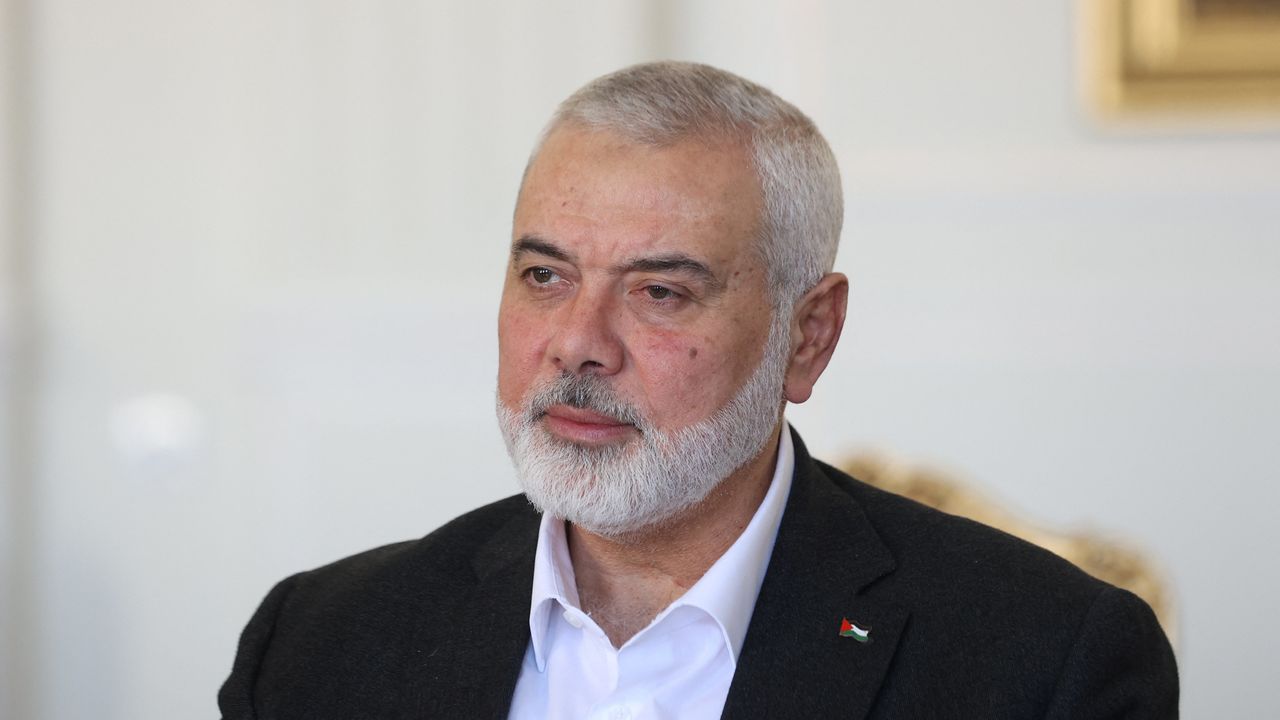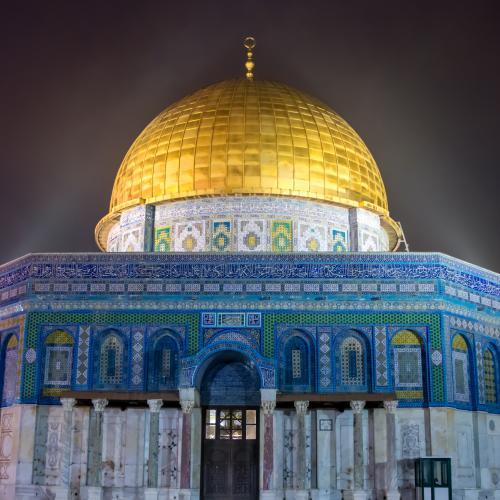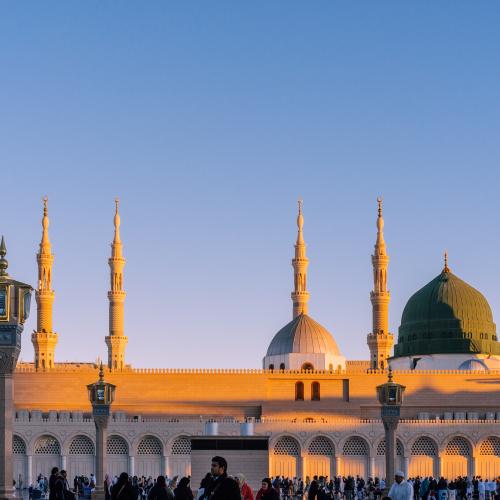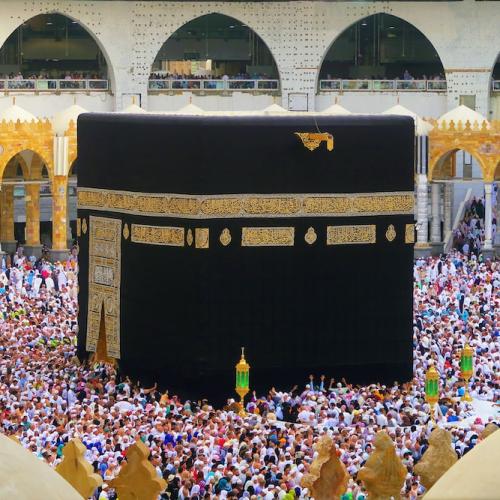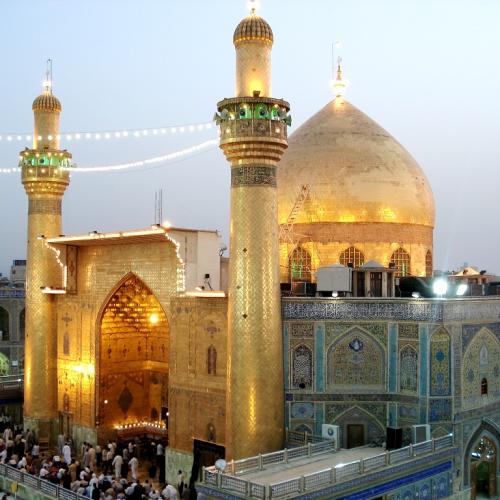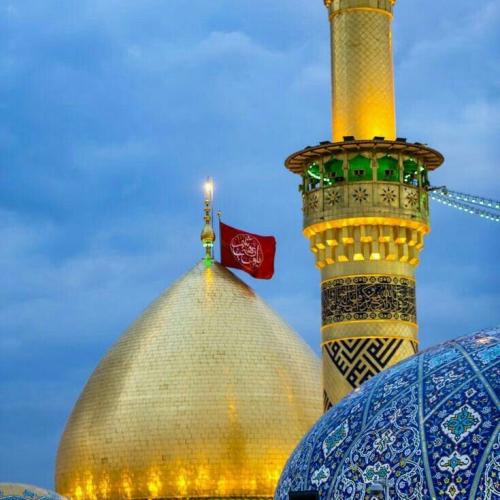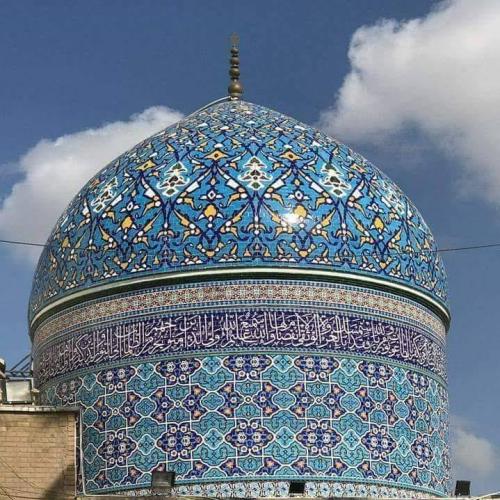We have spoken to several analysts over the past few hours who gave their take on the killing of Haniyeh. Here are some key points:
- Abbas Aslani, a senior research fellow at the Tehran-based Center for Middle East Strategic Studies, expects a harsh response from Iran. “We see that Prime Minister Netanyahu is doing everything he can to prolong the war and expand the conflict. Over the past nine months, Israel has been making efforts to extend and escalate the war to a broader regional scale. They also aim to involve the US in this conflict,” he said.
- According to Hasan Ayoub, assistant professor of political sciences at An-Najah University in Nablus, the killing will be a fatal blow to the Gaza ceasefire talks. It is expected to “undermine months of diplomatic efforts to broker a ceasefire deal in Gaza,” particularly since Qatar acts as the host of the political office of Hamas and it hosted Haniyeh himself, he said.
- Israeli analyst Akiva Eldar says the willingness of the US to allow Israeli leaders such as Netanyahu to conduct regional aggression is the main issue at hand. “As long as the United States is busy with its elections and domestic issues and is unwilling to use its leverage to force Netanyahu to start with a ceasefire in Gaza and a deal that will bring the captives back home, Israel, Lebanon and Iran will have to bury more people,” Eldar said.
- Rami Khouri, a non-resident senior fellow at the Arab Center Washington DC, said one of Israel’s aims in Gaza is to “destroy Hamas as a movement”. But this has proven very difficult, so instead “they are saying, ‘Well, we need to kill all the leaders’,” Khouri said, adding that the assassination of Haniyeh in Iran “may be part of that process”. Killing leaders of groups like Hamas and Hezbollah has long been an Israeli strategy, Khouri continued, but noted that this has not proved successful since past killings resulted in increased public support for these movements.
In Hindi
हमने पिछले कुछ घंटों में कई विश्लेषकों से बात की है जिन्होंने हनीयेह की हत्या पर अपनी राय दी है। यहाँ कुछ मुख्य बिंदु दिए गए हैं:
तेहरान स्थित सेंटर फॉर मिडिल ईस्ट स्ट्रैटेजिक स्टडीज के वरिष्ठ शोध फेलो अब्बास असलानी को ईरान से कठोर प्रतिक्रिया की उम्मीद है। उन्होंने कहा, "हम देखते हैं कि प्रधानमंत्री नेतन्याहू युद्ध को लम्बा खींचने और संघर्ष को बढ़ाने के लिए हर संभव कोशिश कर रहे हैं। पिछले नौ महीनों में, इज़राइल युद्ध को व्यापक क्षेत्रीय स्तर तक बढ़ाने और बढ़ाने के प्रयास कर रहा है। उनका लक्ष्य इस संघर्ष में अमेरिका को भी शामिल करना है।" नब्लस में अन-नजाह विश्वविद्यालय में राजनीति विज्ञान के सहायक प्रोफेसर हसन अयूब के अनुसार, यह हत्या गाजा युद्ध विराम वार्ता के लिए एक घातक झटका होगी। उन्होंने कहा कि इससे "गाजा में युद्ध विराम समझौते के लिए महीनों से चल रहे कूटनीतिक प्रयासों को कमजोर करने" की उम्मीद है, खासकर तब जब कतर हमास के राजनीतिक कार्यालय का मेजबान है और उसने खुद हनीयेह की मेजबानी की है। इजरायल के विश्लेषक अकीवा एल्डर का कहना है कि नेतन्याहू जैसे इजरायली नेताओं को क्षेत्रीय आक्रामकता करने की अनुमति देने की अमेरिका की इच्छा ही मुख्य मुद्दा है। एल्डर ने कहा, "जब तक संयुक्त राज्य अमेरिका अपने चुनावों और घरेलू मुद्दों में व्यस्त है और नेतन्याहू को गाजा में युद्ध विराम और बंदियों को वापस घर लाने वाले सौदे के लिए मजबूर करने के लिए अपने प्रभाव का उपयोग करने के लिए तैयार नहीं है, तब तक इजरायल, लेबनान और ईरान को और अधिक लोगों को दफनाना होगा।" अरब सेंटर वाशिंगटन डीसी के एक गैर-निवासी वरिष्ठ साथी रामी खुरी ने कहा कि गाजा में इजरायल का एक उद्देश्य "हमास को एक आंदोलन के रूप में नष्ट करना" है। लेकिन यह बहुत मुश्किल साबित हुआ है, इसलिए इसके बजाय "वे कह रहे हैं, 'ठीक है, हमें सभी नेताओं को मारने की जरूरत है'," खुरी ने कहा, ईरान में हनीया की हत्या "उस प्रक्रिया का हिस्सा हो सकती है"। खुरी ने आगे कहा कि हमास और हिजबुल्लाह जैसे समूहों के नेताओं को मारना लंबे समय से इजरायल की रणनीति रही है, लेकिन उन्होंने कहा कि यह सफल साबित नहीं हुआ है क्योंकि पिछली हत्याओं के परिणामस्वरूप इन आंदोलनों के लिए जनता का समर्थन बढ़ गया है।

